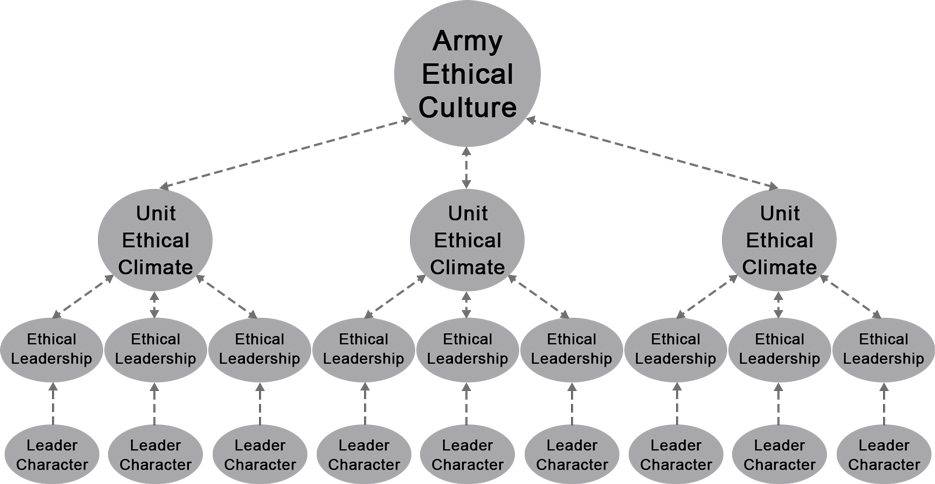Introduction
The Army Profession is a vocation of Soldiers and Department of the Army Civilians whose collective expertise is the ethical design of, support to, and application of landpower; serving under civilian authority; and entrusted to defend the Constitution and the rights and interests of the American people.
–ADP 6-22, 2019
Our actions as Army professionals reflect upon the Army organization as a whole—good or bad. Although Army leaders perform countless ethical acts daily, ethical lapses are what make news headlines. Ethical lapses in the Army undermine the trust and faith held in the Army by the American people.
An Army leader is anyone who by virtue of assumed role or assigned responsibility inspires and influences people by providing purpose, direction, and motivation to accomplish the mission and improve the organization.
–ADP 6-22, 2019
Army leaders take responsibility for the ethical behavior of themselves and those they lead. Providing purpose, direction, and motivation to accomplish the mission and improve the organization must be done ethically. Failure to act ethically undermines mission accomplishment and organizational improvement.
Army leaders are ethical leaders. Ethical leaders serve both as ethical role models and as advocates of ethical behavior within their unit. This means Army leaders embody the Army Values, thereby setting an example for others to follow. Army leaders must also proactively establish and reinforce ethical standards. This, in turn, promotes ethical climate and ultimately the ethical culture of the Army. Ethical behavior is supported top-down by the Army’s existing ethical culture and bottom-up through the character and ethical leadership provided by Army leaders.

User's Guide
This guide is designed to help leaders critically examine their personal values, character, and vulnerabilities to ethical lapses. The goal of this guide is to maintain and improve the character of Army leaders and the ethical leadership they provide to others.
You are encouraged to complete any or all of the exercises. Each exercise is designed to examine your character, values, and ethical leadership from a different perspective. Therefore, the more areas of examination you undertake, the more likely you will achieve increased personal understanding and growth.
Access the links below to download each exercise or download the full Character & Ethical Leadership Self-Reflection Guide.